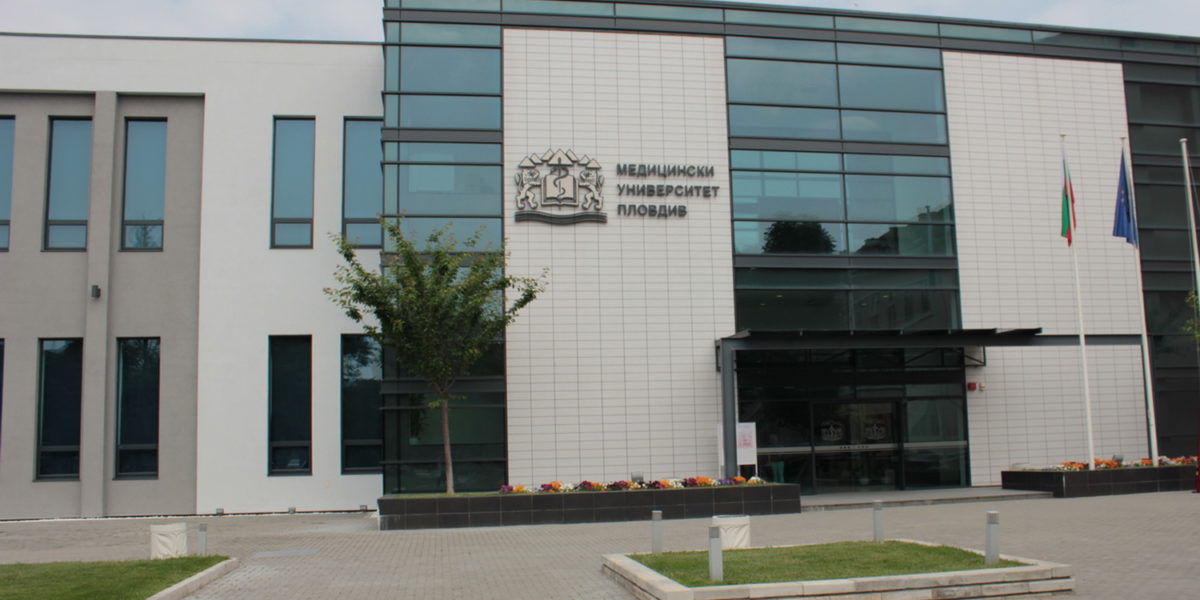The Medical University of Plovdiv was established as a medical faculty of Plovdiv University in 1945. In 1950 the faculty became the independent Medical Academy – Plovdiv. It was renamed in 1972 to Higher Medical Institute – Plovdiv. The Faculty of Dental Medicine was established in 1974, while a Medical College was created in 1997 as a subsidiary of the Medical University of Plovdiv. The Higher Medical Institute was renamed to Medical University of Plovdiv in 2002 after a decision by Bulgaria`s National Assembly. The university has more than 3,500 national and international students, as well as more than 600 teachers and researchers. Medical University Plovdiv provides training to students of Medicine, Dental Medicine, Pharmacy, Health Care Management, Nursing, Midwife and auxiliary medical specialists. The university offers training in Master’s degree programs following the completion of Bachelor’s programs – Health Care Management and postgraduate training in doctoral and specialist courses in a number of specialties.
Plovdiv is the second-largest city in Bulgaria with a population of 341,567 inhabitants as of 2015. It is the administrative center of Plovdiv Province and the municipalities of the City of Plovdiv, Maritsa municipality, and Rodopi municipality, whose municipal body had a population of 404,665 inhabitants as of 2015. It is an important economic, transport, cultural, and educational center. Plovdiv has been continuously inhabited since the 6th millennium BC, in the end of the 4th millennium BC there already was an established Neolithic settlement there. In the 12th century BC the village evolved into a real town populated by Thracians ranking it among world’s oldest cities.
Plovdiv is host to cultural events such as the International Fair Plovdiv, the international theatrical festival “A stage on a crossroad”, and the TV festival “The golden chest”. There are many remains preserved from antiquity such as the ancient Plovdiv Roman theatre, Roman Odeon, Roman aqueduct, Roman Stadium, the archaeological complex Eirene, and others. The city has more than 200 archaeological sites, 30 of which are of national importance. There are many remains from antiquity – Plovdiv is among the few cities with two ancient theatres; remains of the medieval walls and towers; Ottoman baths and mosques; a well-preserved old quarter from the National Revival period with beautiful houses, churches and narrow paved streets. There are numerous museums, art galleries and cultural institutions. Plovdiv is host to musical, theatrical and film events.
Plovdiv has 78 schools including elementary, high, foreign language, mathematics, technical and art schools. There are also 10 private schools and a seminary. Among the most prestigious schools are the English Language School, the High School of Mathematics, the Ivan Vazov Language School, the National Schools of Commerce – Plovdiv, the English Academy, the Academy of Music, Dance and Fine Arts Plovdiv, and the French High School of Plovdiv. The city has six universities and a number of state and private colleges and branches of other universities. Those include Plovdiv University, with 900 lecturers and employees and 13,000 students; the Plovdiv Medical University, with 3,500 students; the Medical College; the Technical University of Sofia – Branch Plovdiv; the Agricultural University – Plovdiv; the University of Food Technologies; the Academy for Music, Dance and Fine Arts; and others.


